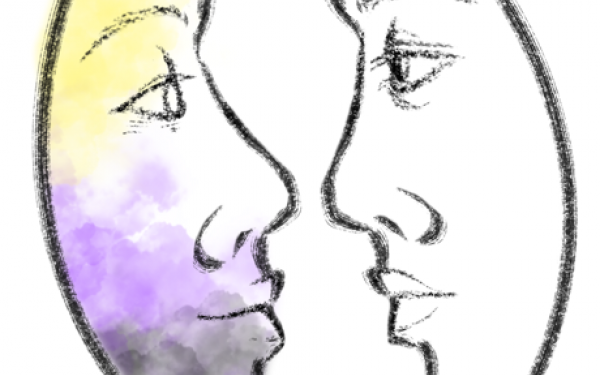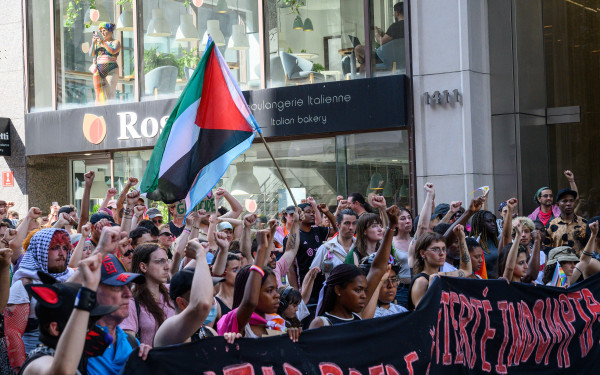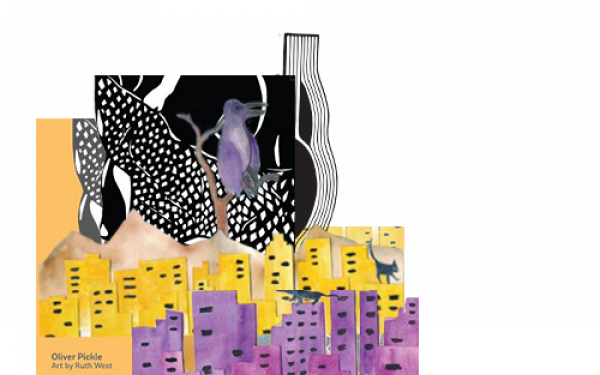Letters as lifelines
PCP’s queer pen pal network for inmates fosters a continent-wide collective of support
Prisoner Correspondence Project (PCP) is a Montreal-based organization facilitating pen pal connections between incarcerated 2SLGBTQIA+ individuals and the broader community since 2007.
Based out of the Quebec Public Interest Research Group’s (QPIRG) Concordia office on Guy St. and run by volunteers, the project currently has 4,897 members and works with 386 prisons across North America.
What began as a helping hand to a similar organization with high pen pal demands in the United States has evolved into over a decade of letters, advocacy and support for incarcerated 2SLGBTQIA+ individuals.
“A lot of activists live very busy lives. So, I think it can be really grounding to actually sit down and write physical letters,” said Rain Huff, a collective member of PCP since 2022 and a pen pal since 2020. “There's one person who's been involved for 17 years, it feels like it's something that can be a really long-term movement and that's what really drew me in.”
A 2017 study by the University of California found that 2SLGBTQIA+ individuals are three times more likely to get incarcerated than their non-2SLGBTQIA+ counterparts. Once behind bars, they often face heightened risks of violence, abuse and neglect, with research also showing higher rates of mental distress or mental health issues.
Over 3,000 members are waiting to be paired, some dating back to 2017. People can sign up through their website by filling out a form and browsing their database which includes blurbs of each member. PCP encourages new pen pals to prioritize older requests when possible, while also promoting connections based on shared interests and experiences.
Dana, a collective member of PCP for over a year and a pen pal for the past nine months, said that the work can, at times, be heavy.
“When people are signing up to be a pen pal, sometimes they include their whole life story, and especially just cases of people who were incarcerated when they were a teenager, and 20 years later, they're still in prison. They never got a chance at life,” Dana said. “It just makes me want to go back and do more next week to make something at least a teeny bit better for someone else.”
Every Tuesday, PCP hosts volunteer hours at their office to assist with paperwork. Huff said they receive numerous requests from people waiting to be paired, ranging from requests for printing documents to asking when they might be matched with a pen pal.
“My pen pal is in a medical centre in Texas. We often don't talk about what he's in there for, but I get play-by-plays of his life and what it's like there,” said Melissa Kravetz, a pen pal and volunteer at PCP since the spring of 2024. “I've created a Spotify playlist of all the songs that he recommends me.”
Kravetz has two pen pals from Texas, one she hears from weekly and another she has only exchanged letters with twice.
Once a person is matched, it can sometimes take longer for the first letters to arrive, and in some states, sending letters can be challenging.
For over a decade, states like Florida and Missouri have banned pen pal programs for inmates, with similar restrictions in Indiana, Montana and Pennsylvania.
“It's stopping people from creating a super basic connection,” Huff said. “People are shuffled around from one unit to another, so we get stuff sent back. [Prison systems] are not trying to forward the mail. They're not trying to help us out. They're not trying to do anything. [...] They just make things hard for people. Every single step of the way.”
Research by The University of Warwick has demonstrated that pen pal programs play a significant role in the rehabilitation of incarcerated individuals, offering emotional support, fostering connections and reducing feelings of isolation.
“I've heard from people who are on death row [...] and yet they're so filled with a zest for life. And it inspires me. It really, really does,” Kravetz said.
To support new pen pals, PCP hosts workshops that guide participants through writing their first letters.
“It's really meaningful that people want to share their stories with us,” Huff said. “If someone is capable of committing to that basic connection, you're going to create a relationship that can be meaningful, that can bring a lot into your life.”
This article originally appeared in Volume 45, Issue 4, published October 22, 2024.







